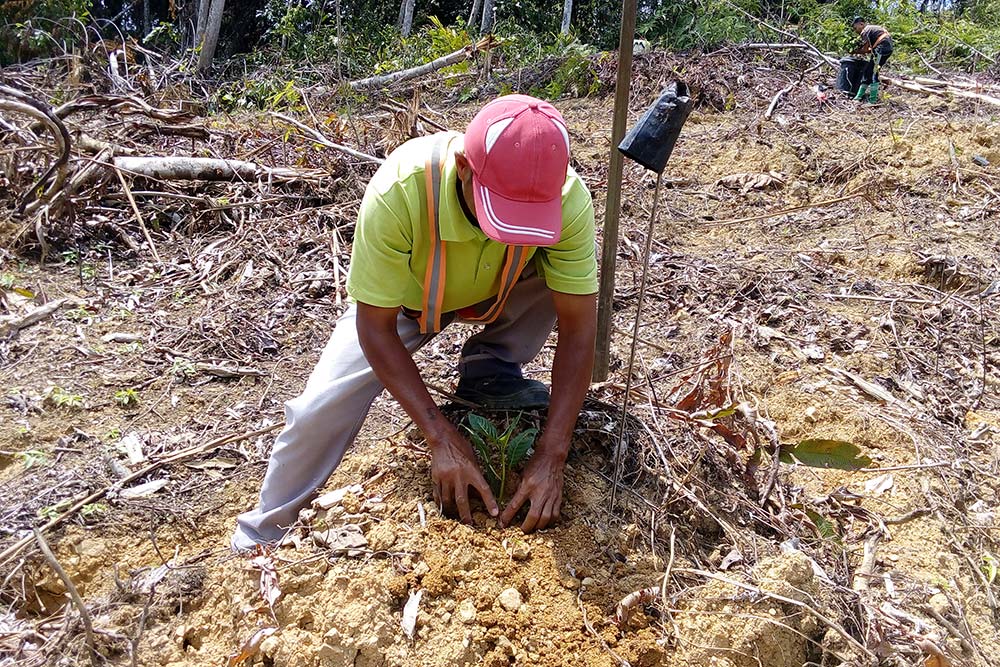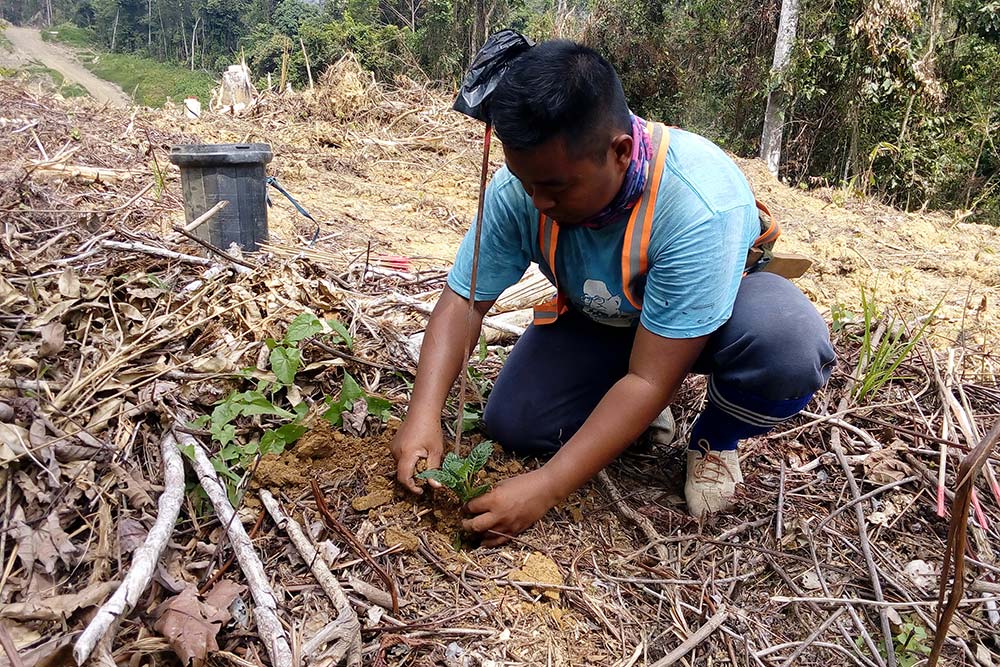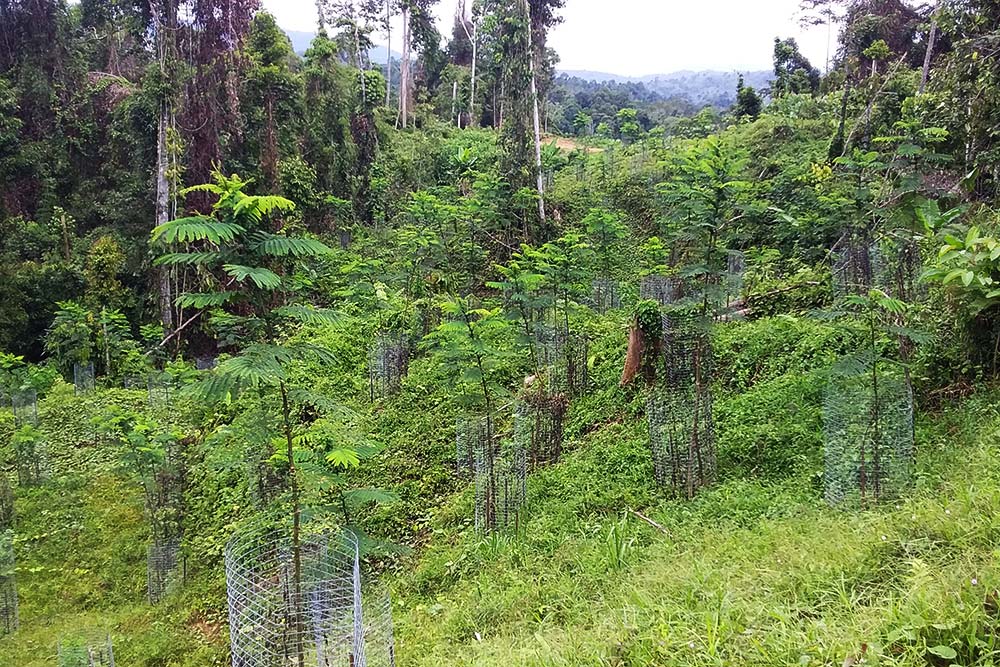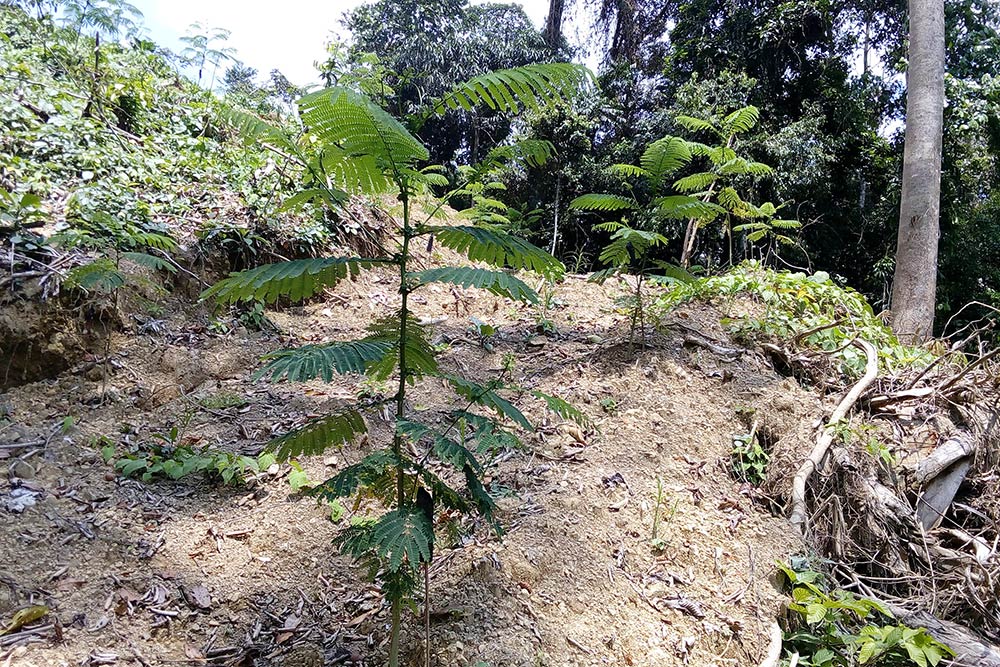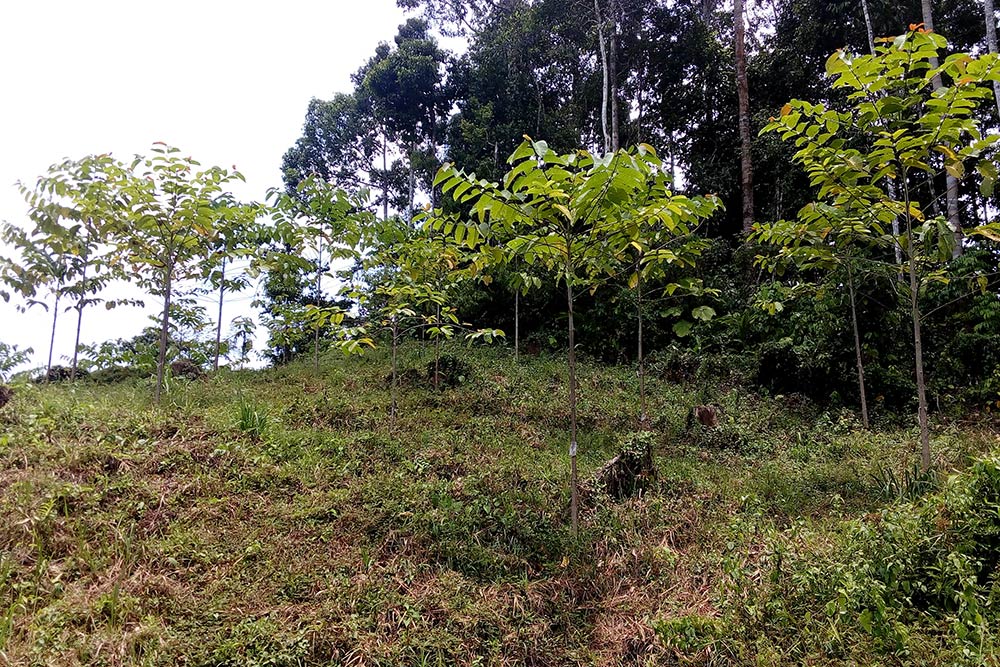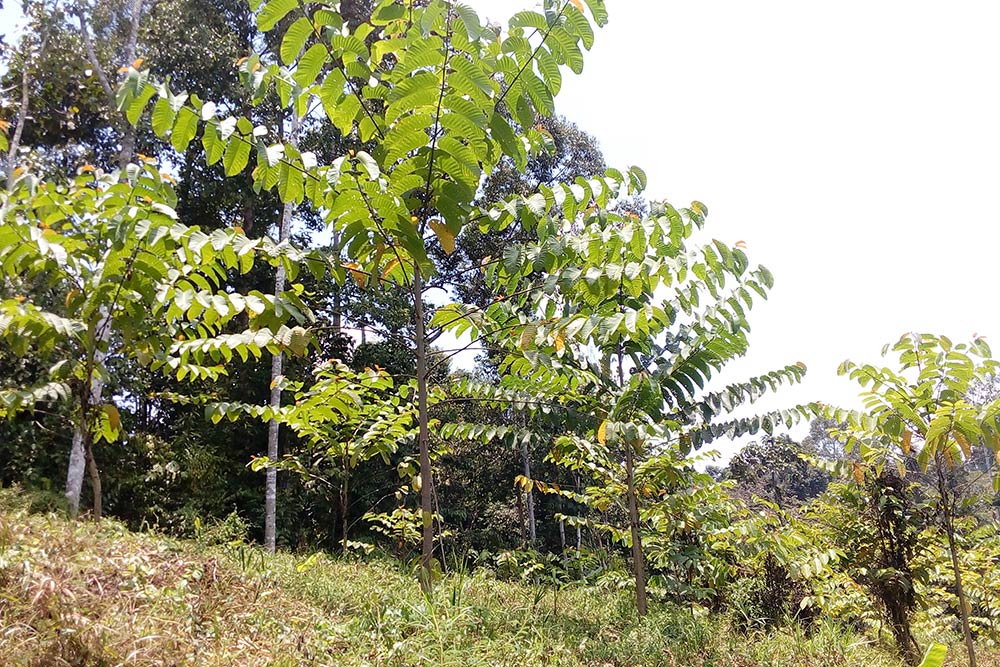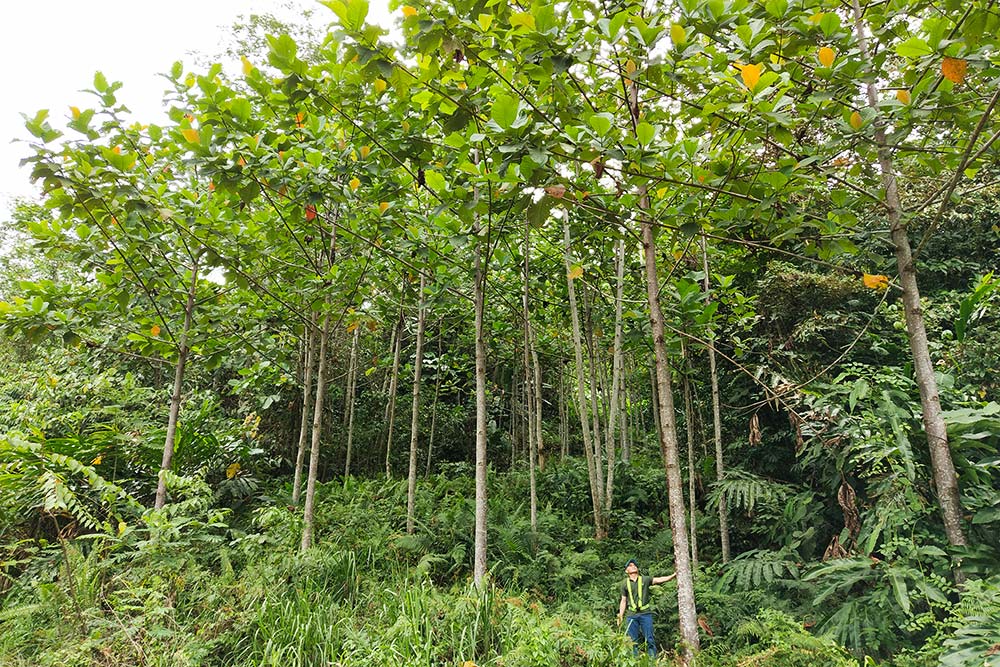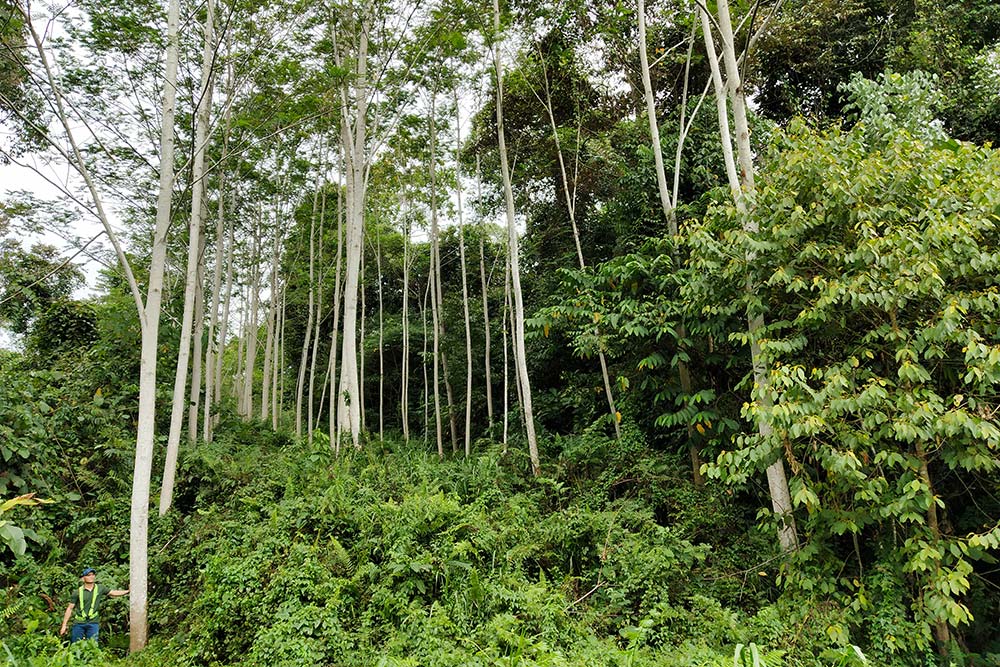Bringing Back the Natural Forest and Managing it Sustainably
Why we need to bring back the forest?
Its wide range of use as well as the growing industries’ for its demand has made wood a highly sought material and its need will unlikely disappear any time soon.
Sadly, wood is primarily obtained from trees of diminishing Sabah forests.
Although, trees can still be grown, thanks to the regenerative abilities of Mother Nature, they are still logged at a rate much faster than it can grow.
Over exploitation and poor forest management practices are driving our forests to extinction, along with the wildlife that depends on it for survival. SFD aims to reverse this trend, just as how it has had done on the Sabah Forest Management Unit 14 (FMU14).
The forest sustainability management practices done by SFD will not only deal with the environmental concerns, but also the demands of the industry for years.
How do we manage sustainably
In the Sapulut FMU, SFD has set up an industrial timber plantation area where former logging sites are being replanted with trees. At the same time, SFD carries out selective logging operations, adhering to the strict reduced impact logging (RIL) methods when logging in natural forests.
Among others, SFD also protects its FMU from encroachment by illegal loggers and the destruction of forests fires via regular surveillance. As such plants, animals and forest features of high conservation value are well guarded by SFD.
SFD also works together with the Forestry Department other FMU companies surrounding or close to the Maliau Basin Conservation Area, as well as the local communities. The success of SFD lies on its effort in keeping a balance between environments, economy and social, not just as it was underlined its license agreement but also the company’s core principles.
Planting for the Future
Planting and Maintenance
Planting and maintenance activities at Sapulut are carried out with the mission of “Bringing back the natural forest and manage it sustainably.”
For this, Sapulut has adopted the Buffer Alternate Strip Interval Lining (BASIL) planting method to maintain the environment and biological value of the forest and at the same time fulfill the need for short-term rotation of plantation in the Industrial Tree Plantation (ITP) area.
As BASIL is an evolving system, and Sapulut is constantly innovating, we expect there will be further changes to ensure optimal balance of efficiency, utilisation of planting area and ecological values.
Currently Albizia (Paraserianthes falcataria) and Laran (Neolamarkia cadamba and Neolamarcia macrophylla) are the two main commercial fast-growing species planted. Sapulut is looking at the possibility of introducing Eucalyptus Pelita due to its superior performance in the near future.
